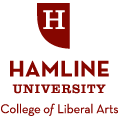Date of Award
Fall 2014
Degree Type
Honors Project
School
College of Liberal Arts
First Advisor
Binnur Ozkececi-Taner
Abstract
For much of its history, the discourse of International Relations (IR) has been characterized by clashes between paradigms, exclusion of non-positivist research methodologies, and the marginalization of various subfields. Since the fourth debate “pluralism” is rapidly becoming a buzzword within the literature, but without serious conceptual analysis “pluralism” risks becoming another intellectual fad given lip-service but not engaged with in a way that could produce positive change within the discipline. This project examines three varieties of pluralism: theoretical, methodological, and pluralism of level of analysis. A brief intellectual history of pluralism in international relations is outlined, culminating in the works of Sil and Katzenstein (2010) and Jackson (2011). These works exemplify theoretical and methodological pluralism, respectively. The major novel contribution of this project is in exploring the prospects of pluralism at the level of analysis. In many respects, a wall of separation still exists between the mainstream, structural approaches to IR and the actor-specific approach of foreign policy analysis (FPA). The project presents evidence that much of the mutual animosity between FPA and IR is due to diverging understandings of the agent-structure problem. In particular, confused notions of influential IR scholar Kenneth Waltz’s views on this issue lead both IR and FPA scholars to misunderstand their relation to one another. This project offers a way past “the specter of Waltz” and towards a more constructive, engaged, and reciprocal relationship between IR and FPA. An attempt is then made at illustrating how the discussions of pluralism within the IR literature can be applied to FPA; indeed, many of these ideas have been floating around the FPA literature for several years. By advocating pluralism and resolving abstract, unnecessary, and unproductive debates, this project aims to contribute to the task of building a framework for IR that is at once more theoretically rigorous and practically relevant.
Recommended Citation
Dolan, Lucas M., "Three Pluralisms: Theories, Methodologies, and Levels of Analysis in the Study of World Politics" (2014). Departmental Honors Projects. 27.
https://digitalcommons.hamline.edu/dhp/27
dc_type
text
dc_publisher
DigitalCommons@Hamline
dc_format
application/pdf
dc_source
Departmental Honors Project
Included in
International Relations Commons, Philosophy of Science Commons, Political Theory Commons

